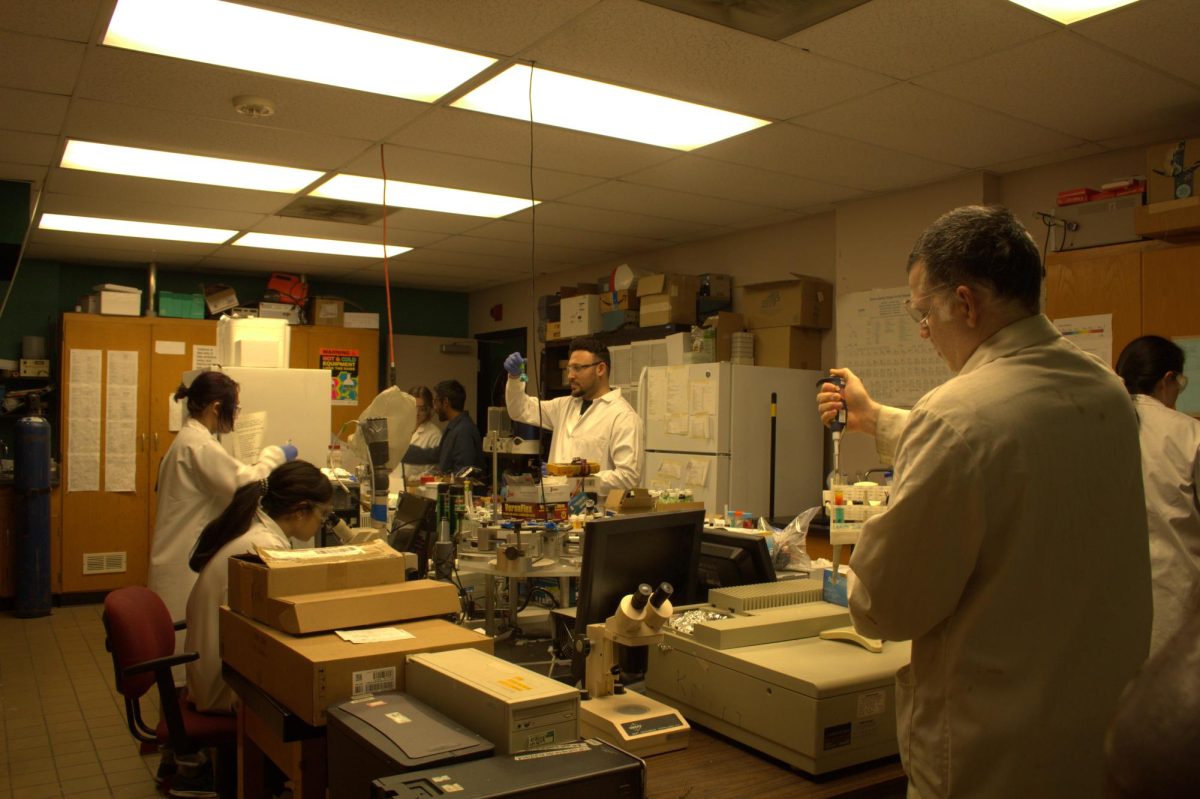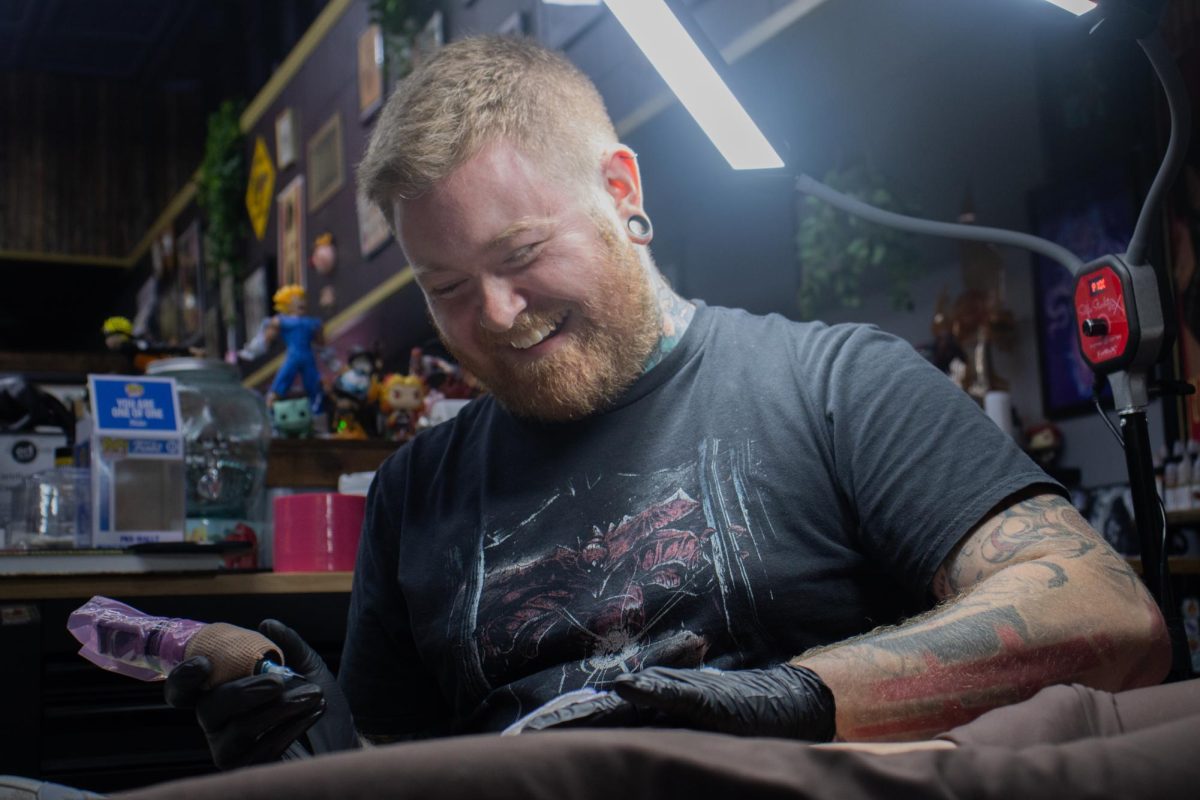Advisement makes improvements
February 21, 2012
After an advising consultant was brought in to assess SIUC’s advisement system, she labeled the university’s advisement methods under a new category: chaotic.
“It sort of identified exactly what we suspected,” Provost John Nicklow said.
Lynn Freeman, founder of AdviseU, a consultant firm for college and career planning, visited SIUC during the summer to observe the advisement system and make recommendations for improvement.
Advertisement
According to the final report of recommendations and action steps, the purpose of her visit was to “identify strategies that build on the strengths of academic advising at SIU, enabling it to better contribute to its institution-wide goals of improving retention, recruitment and student success and satisfaction.”
Freeman’s recommendations were based on research findings in the following publications: National Survey of Student Engagement; “Student Success in College: Creating Conditions that Matter”; and “Academic Advising: A Comprehensive Handbook.”
Freeman said her first observation after speaking with faculty, staff and students was that the organizational model for advisement was a mix of several models, which is chaotic and confusing for students, advisers and faculty. There was a lack of consistency in how, where and by whom undeclared and exploratory students were advised. She said she also found an absence of consistent training, outcomes, evaluation, assessment, job titles and job descriptions for academic advisers.
Jim Allen, associate provost for academic programs, said advisement needs to be more consistent.
“We need to be more predictable about how we handle advisement on campus,” he said.
Freeman gave a list of prioritized recommendations for the university.
The first was to have better communication. She said a way to do this is to make a campus-wide advisory council that is selected by and reports to the provost.
Advertisement*
The council helps communication across campus, builds relationships and helps others get on board with the campus advising model and process, according to the report. All in all, it would get advisers information about curriculum and policy changes in a timely and consistent manner and establish a venue for advisers to communicate on a regular basis.
Allen said an advisory council has been developed in response with a mix of different kinds of advisers.
Another suggestion was to add more transparency to the advisement process. Freeman said implementations that affect advising should include advisers in the decision-making process.
She also said there should be a new position called the advising champion. This person would facilitate campus-wide communication for advisement and have authority over other advisers.
Tamora Workman, director of Transfer Student Services, has been named to the position.
Allen said it’s important that an advisement champion was named because no one previously spoke for advisement on campus as a central concern. He said deans could have been considered advisement champions in a way, but they had many other responsibilities so it wasn’t often they would be heard bringing up advisement as an issue.
“So this makes it possible for (Workman) when she speaks about advisement,” Allen said. “Everybody listens because they know she has a special charge.”
Freeman also said the SIU Advisement Survey 2010 states that students consistently reported they wanted advisers to identify alternative educational opportunities through exploration advising, which guides students who are undeclared or considering switching majors. She said there should also be more intrusive advising, such as when a student receives the motivation from an adviser to ask for help before a problem occurs.
“Intrusive advising is not ‘hand-holding’ or parenting, but rather active concern for students’ academic preparation,” the report states.
Another issue Freeman discussed is the broad interpretation of the university’s academic policy. She said many advisers have different definitions of how the policy works and this could be attributed to the amount of time they spend on administrative tasks and paperwork rather than advising. SIUC advisers spend 50 percent of their time on administrative tasks, Freeman said, while they should only spend about 10 to 15 percent of their time on them.
To alleviate this issue, Allen was selected to handle all policy issues.
“Right now, (advisers) don’t know who to go to,” he said. “We have many different sources of academic policy. Now there will be one source for it, and it won’t conflict from one place to another.”
Allen said he will be involved in discussions about interpretation of policy and how it is applied to students’ particular situations.
Freeman also suggested there should be a smaller ratio of students assigned to each adviser. Allen said rather than having 300 students per adviser, there should only be about 150.
“We have a lot of students per academic adviser when they first arrive on campus,” he said. “We need to provide many more advisement resources to students.”
Nicklow said eventually the university will try to have all first-year students will be centrally advised.
“That’s down the road,” he said. “We haven’t worked out the details of how that would occur.”
Nicklow said many people were afraid the changes would call for the removal of advisers.
“Absolutely not,” he said. “The advisers are a key part of this. We need them. They’re valuable.”
Mark Amos, associate provost and dean of University College, said centralization of advisement has not been planned, and students will continue to be advised in their academic units.
“We want to ensure all students receive quality advisement, no matter where they are advised,” he said in an email.
Nicklow said the point of the report was to create consistent and clear standards for the expectations of advisers and colleges.
At the end of her report, Freeman stated it’s easy to talk about making changes, but implementation is difficult. She said if SIUC does nothing about its advisement issues, they will only become worse.
Advertisement








